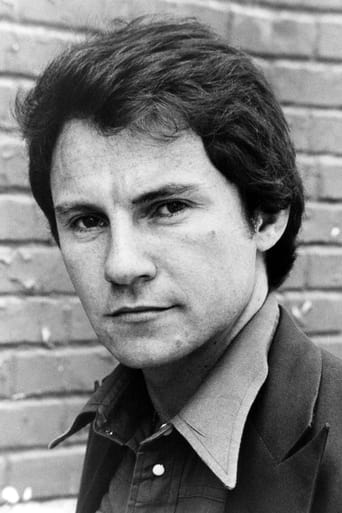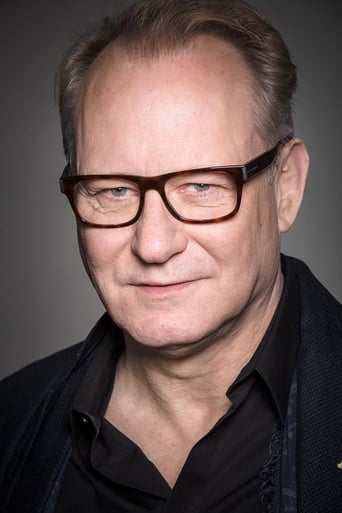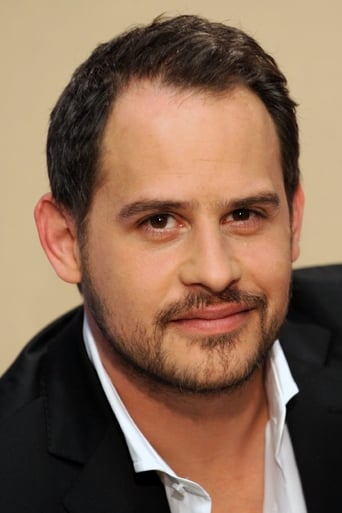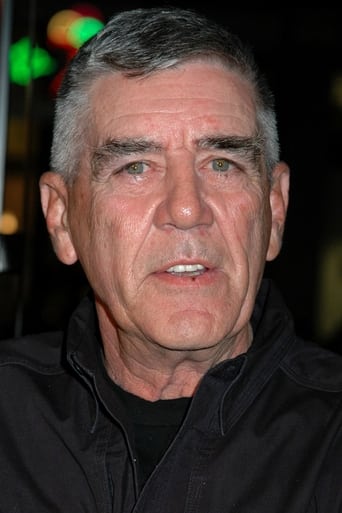Connianatu
How wonderful it is to see this fine actress carry a film and carry it so beautifully.
WillSushyMedia
This movie was so-so. It had it's moments, but wasn't the greatest.
Voxitype
Good films always raise compelling questions, whether the format is fiction or documentary fact.
Payno
I think this is a new genre that they're all sort of working their way through it and haven't got all the kinks worked out yet but it's a genre that works for me.
anthony kaye
Cinema is littered with great stage plays turned into poor film. This is not one of them. I've seen this film twice- unfortunately each time from 30 minutes in- but the 2nd viewing was better than the first.Harvey Keitel is a first-rate actor. I've never seen a better performed drunk. Was he plied with a half bottle of whisky before the scene with the Russian was shot?. The moral dilemmas of the main characters are beautifully displayed, as is the sheer grimness of life in post WW2 Berlin.Enough said. Why a Yorkshireman should have to write ten lines when he can say everything he wants in in five is beyond me.
paul2001sw-1
My favourite film about collaboration with Kieslowski's 'No End', in which a weary lawyer tells an opponent of the state "You decided to collaborate the day you decided not to throw yourself in front of a tank." The truth is, that faced with evil (and poor odds of beating it), only a few adopt a policy of outright resistance. But sometimes life forces one into taking sides; and 'Taking Sides' is the name of this film, about the German conductor Furtwangler and his relationship with the Nazis. It covers the usual ground, with less subtlety than Kieslowski's film, although there are similar arguments: at one point Furtwangler alleges that the American officer trying to indict him for Nazism is blaming him for his "failure to be hanged." In the case of the Nazis, however, the utter wickedness of their government reduces our capacity for sympathy for those who did not resist, which, the film suggests, in Furtwangler's case was at least in part a consequence of his utter devotion to his music: that his compromises were motivated not solely by fear, but also by his professional ambition. What doesn't quite ring true is the slant of the officer's antagonism: he wants to hold Furtwangler responsible more for the German people's collective acceptance of the concentration camps than his own direct collaboration; this is not implausible, but the film would work better if we were presented with his motivation also in personal terms, but it passes unquestioned. And the ending of the film lacks power, again because we don't know enough about this character to wholly share his sentiments at the end of the interrogation. But it's still a strong movie, thought provoking and a reminder of how lucky many of us are not to live in times where we have to make choices on which many lives, our own and those of others, hang.
dl-roberts
Harvey Keitel plays Major Steve Arnold, a small man in insurance, from New York. Stellan Skarsgård plays Furtwängler, a genius who was loved and courted by the Nazis.The Major pursues Furtwangler like a rabid dog, determined to show that that Furtwangler was guilty of something.Why didn't Furtwangler leave when he had the chance? Did he seek out accolades from the devil? Why is Major Arnold so Angry? It it the anger of a small man who feels spat upon by life, suddenly given the chance of bring down someone once so High and Mighty?FurtWangler is aloof, distant, full of easy platitudes about the redemptive quality of Art. Major Arnold is mean and streetwise, quick to attack and condemn those who he does not understand.Who is in the wrong? In the end does it mean anything to believe you are right? In whose eyes anyway? This film asks some difficult questions about how we perceive ourselves and others, how we question our most basic motives. Very Good.
weed_harper
I came to this film with a detailed knowledge of the actual historical events. Many viewers will most likely be largely unfamiliar with the complexities of the case, and there are some details which are important, but glossed over.For example: there are frequent references in the dialogue to Furtwängler's rival, Herbert von Karajan ("Little K.") Why did the Americans attack Furtwängler, and not von Karajan, who was an ardent Nazi? Furtwängler was prevented from conducting in the U.S., while von Karajan was lionized. Perhaps the makers of this film thought that the implications of this were too big to be discussed in the film. I'm sure that they didn't even want to go near the fact that the people who ran the de-nazification program were Americans with close ties to the Nazis themselves.Also, Furtwängler's rationale for staying in Germany was somewhat more philosophical than the film implies. He thought he was defending the legacy of Mozart, Beethoven et al against the Nazis, and that this was a sacred responsibility. A bit of this comes out in the film, but in a superficial way.With respect to the success of the film otherwise, Stellan Skarsgaard is excellent as Furtwängler, even managing to resemble him somewhat. I think that Harvey Keitel is somewhat hampered by the script -- the film would have been more successful if Keitel had come off as more conflicted and less one-dimensional. Clearly the director wished to imply that Keitel was conflicted, but that, as a military man, he was required to toe the line -- the frequent shots of Army indoctrination films (about how bad the Germans were) were intended to provide a rationale for Keitel's behavior. But the film would have been more compelling if Keitel were given an opportunity to express more doubts about what he was being asked to do. I also thought that the ending was a bit anticlimactic.




